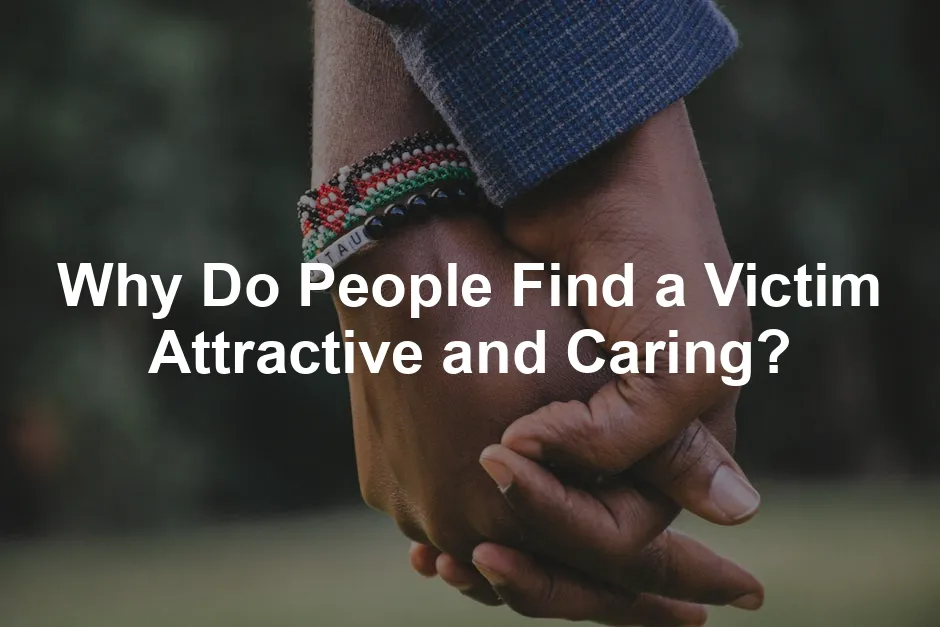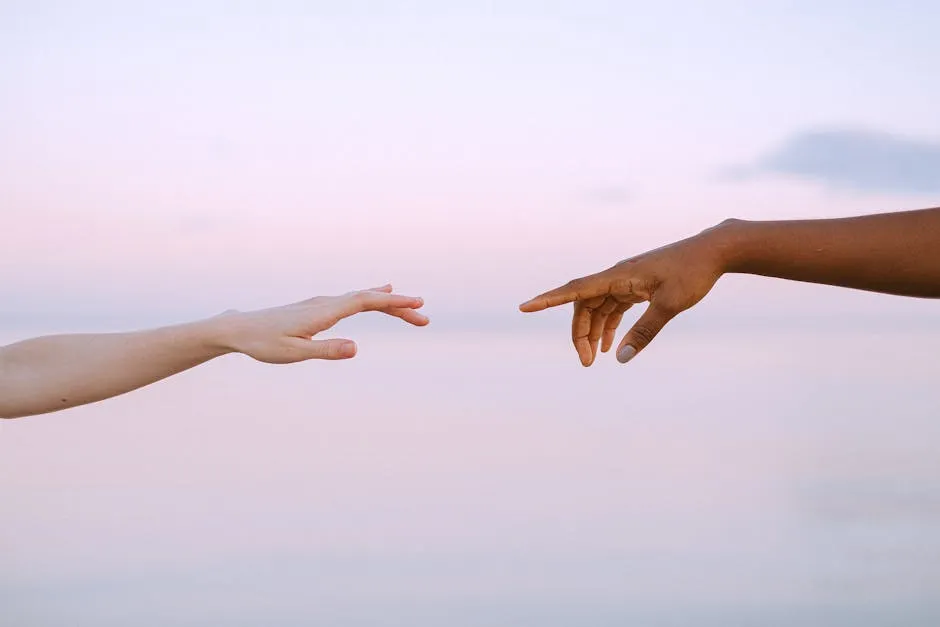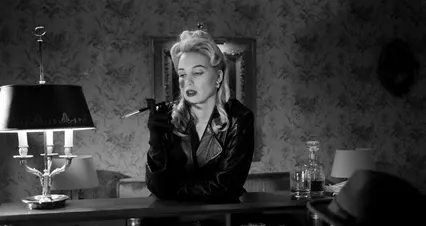
Why Do People Find a Victim Attractive and Caring?
Introduction
Have you ever wondered why some people find victims attractive? This phenomenon often ties to a caring nature that can draw others in. Psychological and societal factors play a significant role in this attraction. Understanding these influences helps us grasp the complexity of human relationships. In this article, we will explore the reasons behind this intriguing dynamic.
Summary and Overview
Attraction to victims is multi-layered. It involves emotional connections and societal views on caring. A “victim” typically refers to someone who has suffered harm or trauma, while “caring” denotes empathy and support. Grasping these definitions is crucial in understanding relationships.
Recognizing these dynamics is vital for healthier connections. Attraction is not purely instinctive; it reflects deeper values and choices. By examining these aspects, we can better navigate our relationships and personal values. Understanding attraction’s complexity can guide us toward healthier emotional connections.

To aid your journey towards emotional well-being, consider incorporating a Essential Oil Diffuser into your self-care routine. The calming scents can create a peaceful environment for reflection and relaxation, perfect for those deep conversations we all need to have with ourselves.
The Psychology Behind Attraction to Victims
The Role of Empathy
Empathy plays a huge role in attraction. When we see someone who has been hurt, our natural instinct is to connect. We often feel a strong emotional connection. This connection can draw us closer to those who seem vulnerable. Wanting to help or heal someone can enhance this bond.
Research shows that empathy is crucial in relationships. A study found that 70% of people value empathy in their partners. When we empathize, we often feel a desire to support those in need. This helping behavior can make victims appear more attractive. We want to nurture their emotional wounds.
Empathy not only strengthens attraction but also deepens emotional bonds. It allows us to understand and share feelings. In relationships, this shared understanding can lead to deeper connections. Ultimately, empathy fuels our attraction to victims, making us want to care for them even more.

The Allure of Vulnerability
Vulnerability often captures our attention. It can be surprisingly attractive. When someone shows their struggles, it evokes our protective instincts. We instinctively want to shield them from further harm. This protective feeling can create a strong attraction.
Research shows that vulnerability can foster intimacy. A study found that sharing personal stories can increase feelings of closeness. When someone opens up, it invites deeper conversations. This emotional openness can lead to stronger relationships.
Vulnerability showcases authenticity, which many people find appealing. It’s a reminder that everyone has their battles. When we see someone being real, it resonates with us. This connection can spark curiosity and affection. In the end, vulnerability not only draws us in but also strengthens our desire to care for others.
If you’re looking to enhance your emotional intelligence, consider picking up a copy of Emotional Intelligence 2.0 by Travis Bradberry. It’s a fantastic resource for understanding and enhancing your emotional connections.
Societal Influences on Attraction
Media Portrayals of Victims
Media representations significantly shape how we perceive victims. Movies, books, and social media often highlight the struggles of victims, portraying them as relatable and deserving of compassion. For instance, films like The Pursuit of Happyness showcase characters facing adversity, drawing sympathy and admiration from audiences.
These narratives create societal norms regarding attraction. We often see victims depicted as resilient, which can make them seem more appealing. The more we consume these stories, the more we internalize the idea that caring for a victim is noble. This can lead to a tendency to romanticize vulnerability, influencing our attraction patterns.
Moreover, social media amplifies these portrayals. Platforms often highlight personal stories of struggle, making victims’ experiences visible and emotionally resonant. The sharing of these experiences fosters a culture where caring for victims is not just accepted but celebrated. This media influence shapes our relationship ideals, often positioning victims as attractive partners.

Cultural Perceptions of Caring
Cultural perspectives play a crucial role in how we view caring and victimhood. Different cultures have varying beliefs about empathy and support. For instance, in collectivist societies, caring for victims is often seen as a communal responsibility. This creates an environment where individuals are more likely to be attracted to those in need of care.
In contrast, individualistic cultures may emphasize self-reliance. Here, caring for victims can be viewed more skeptically, potentially affecting relationship dynamics. Studies show that individuals from cultures valuing interdependence are more likely to prioritize emotional connections with victims, leading to more profound attractions.
Research indicates that cultural perceptions shape relationship norms. Surveys reveal that people from collectivist backgrounds tend to engage more actively in helping behaviors, which can enhance attraction. These caring dynamics highlight how cultural context influences our perceptions of victims and those who support them, creating a complex web of attraction in relationships.
Relationship Dynamics Involving Victims
The Victim-Rescuer Dynamic
The rescuer role in relationships can be compelling. Many people feel drawn to victims because they want to help. This desire often stems from a deep-seated need to nurture. However, this dynamic can lead to imbalances. The rescuer may feel overly responsible for the victim’s well-being. This can create pressure and strain in the relationship.
Experts warn that this rescuer-victim dynamic can become unhealthy. It may foster dependency, where the victim relies heavily on the rescuer. This dependency can stifle personal growth for both parties. The rescuer might neglect their own needs. Meanwhile, the victim may avoid taking responsibility for their healing.
Relationship specialists suggest clear communication is essential. Setting boundaries helps maintain a healthy balance. Both individuals must recognize their roles without losing themselves. By doing so, they can cultivate a supportive yet empowering relationship.

The Impact of Past Trauma
Past traumas significantly shape our attraction to victims. Many individuals are drawn to those who display vulnerability. This connection often arises from their own unresolved issues. People with similar emotional scars may feel an instinctual bond. This phenomenon is known as trauma bonding, where shared experiences create deep ties.
Statistics reveal that many individuals with past traumas seek out partners who reflect their struggles. Research indicates that about 70% of people in relationships with trauma survivors report feeling a strong emotional connection. However, this bond can complicate relationship dynamics. The shared pain may lead to intense, yet chaotic, interactions.
Understanding trauma bonding is crucial for healthy relationships. It can lead to cycles of emotional highs and lows. Addressing these patterns requires self-awareness and open dialogue. By recognizing the impact of past trauma, individuals can foster healthier connections. They can break free from the cycles that often hinder their emotional growth.
Characteristics of Victims that Attract Others
Emotional Availability
Emotional openness can be incredibly attractive. When victims express their feelings honestly, it fosters trust. This honesty invites deeper connections. Emotional availability often signals a willingness to understand and share experiences.
However, there’s a balance to maintain. Being a victim can sometimes overshadow emotional availability. It’s crucial for individuals to reclaim their narratives. This means moving beyond victimhood while still being open to emotional intimacy.
Experts emphasize the importance of emotional intelligence in relationships. According to psychologist Dr. John Gottman, emotional intelligence is vital for lasting connections. It helps partners navigate challenges with empathy and understanding. So, when victims show emotional availability, it can enhance their attractiveness in the eyes of others.

To boost your emotional intelligence, consider adding Self-Help Books to your reading list. They can provide valuable insights into enhancing your emotional skills.
Understanding the role of emotional intelligence can significantly impact personal connections. Why are emotional intelligence skills considered attractive in personal connections
The Desire for Authenticity
Victims often come across as more authentic. Their struggles can lead to genuine connections. People tend to be drawn to those who share their vulnerabilities. It creates a sense of belonging and understanding.
Many individuals appreciate authenticity in relationships. As one person shared, “I connect with those who have faced hardships. Their stories resonate with me.” This desire for authenticity enriches relationship dynamics. It encourages openness and fosters deeper bonds.
In a world filled with curated images, authentic connections stand out. Victims often embody this authenticity through their experiences. This can make them more appealing to others seeking genuine relationships.

Challenges in Attracting Victims
Misinterpretations and Stereotypes
Victims often face stereotypes that can hinder attraction. Common perceptions may label them as weak or overly emotional. These stereotypes can create barriers in forming genuine connections. They often overshadow the individual’s strengths and resilience.
Research shows that societal perceptions of victims can vary. A survey revealed that many people view victims through a lens of pity rather than respect. This can complicate the dynamics of attraction. When individuals focus solely on stereotypes, they miss the opportunity to connect on a deeper level.
Addressing these misconceptions is vital. By recognizing the complexity of victims’ experiences, we can foster healthier relationships. Moving beyond stereotypes opens the door to meaningful connections.

The Risk of Codependency
Relationships with victims can sometimes lead to codependency. This dynamic occurs when one partner relies heavily on the other for emotional support. It can create an unhealthy balance in the relationship.
Signs of codependency include feeling responsible for the other person’s emotions. If you find yourself constantly sacrificing your needs for someone else, it may be time to reassess. Experts advise maintaining healthy boundaries to prevent this from happening.
Learning to support someone without losing yourself is essential. Setting limits on emotional availability can help both partners grow. Prioritizing individual well-being is crucial for a balanced relationship. Recognizing these patterns can lead to healthier connections and deeper understanding.
If you’re looking for some fun ways to alleviate stress, consider trying out Stress Relief Fidget Toys. They’re great for keeping your hands busy while you navigate the complexities of relationships!
Conclusion
In summary, the attraction to victims often stems from emotional availability and authenticity. However, challenges like stereotypes and codependency can complicate these dynamics. Reflecting on our relationships and values is essential. By understanding these complexities, we can foster healthier connections. Consider how these insights resonate with your own experiences.
If you’re looking to delve deeper into self-help, check out The Gifts of Imperfection by Brené Brown. It’s a fantastic read for anyone looking to embrace their true selves.
Please let us know what you think about our content by leaving a comment down below!
Thank you for reading till here 🙂
All images from Pexels




